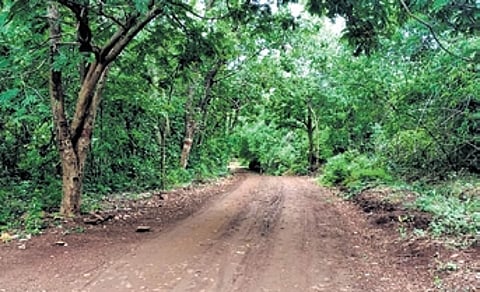

BENGALURU: The Indian Institute of Science (IISc) will take up a hydrological study at Moolehole in Bandipur Tiger Reserve. The study is a part of a larger study being undertaken by researchers on the Kabini river basin.
The hydrological observation study is also a part of the creation of an information base for the TRISHNA satellite, an evapo-transportation satellite, which will soon be launched under Indo-French cooperation.
The State Board for Wildlife approved the study to be undertaken by IISc on October 7. The file will now be placed before the National Board for Wildlife for approval, as the study is to be undertaken in the core area of the tiger reserve.
With the Forest Department’s assistance, the team of researchers has been undertaking studies on the Cauvery and Kabini basins for the last 20 years. Now, permission has been sought for undertaking a study in a 5 sq km area in Moolehole. “There is no harm in undertaking studies, as it will help us understand the ground status. Research of all sorts is welcome,” said Principal Chief Conservator of Forests Brijesh Kumar Dikshit.
Researchers are looking to study the carbon cycle, changes in the growth of forests, changes in the water cycle, changes in the groundwater table, and the impact of drought and non-drought years. Forests help in mitigating floods. Increasing urbanisation abutting forest areas could have long-lasting impacts, which the researchers are looking at now. Forests are under pressure owing to climate change.
This study will help in ascertaining the importance of forests and will also help the government in planning the road ahead, explained Prof Sekhar Muddu from the Department of Civil Engineering, IISc, who is part of the study team.
The researchers are looking for a water and elemental study. They are keen to set up a water tower and utilise the existing watch tower of the Forest
Department for setting up
instruments. The researchers said that so far the study has helped understand the impact on forests, understand robust vegetative species that have been able to survive, and how extensive pumping of water is impacting forests.
“Now we want to vigorously understand the carbon cycle, and it has been proposed to set up a 30-meter-tall tower. The study is planned for a five-year duration. The study will also help in understanding the forests and presence of water in the forests,” he added.